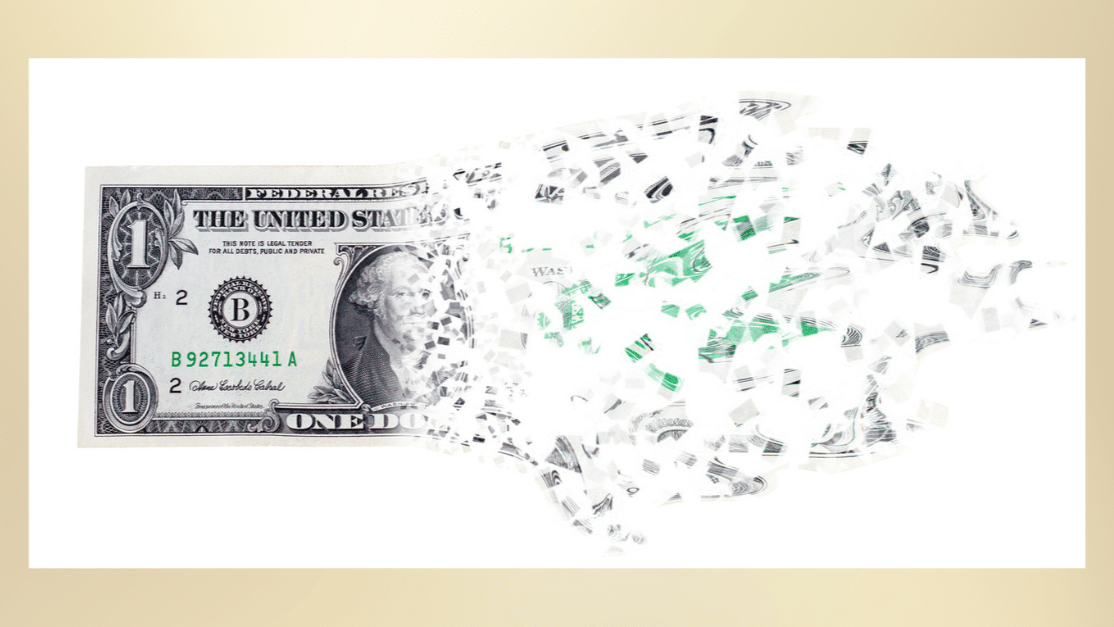The Case For Gold
| BID / ASK | 2,721.46 | 2,722.46 |
| CHANGE | 28.57 | 1.05 |
| HIGH / LOW | 2,721.46 | 2,721.46 |
| BID / ASK | 33.73 | 33.83 |
| CHANGE | 2.02 | 5.98 |
| HIGH / LOW | 33.73 | 33.73 |
The Case for Gold
In today’s volatile markets, the case for gold has never been stronger. Gold provides a unique benefit to portfolios that no other metal can match. Specifically, it acts as insurance against financial instability and systemic risks. It safeguards your wealth when other assets, like stocks and bonds, falter due to market downturns or economic crises. Therefore, every investor should consider holding an allocation in their portfolio. Now, more than ever, it is critical to reduse risk by owning physical gold.
Portfolio Insurance
Traditional asset allocation models focus heavily on stocks, bonds, and cash equivalents, all tied to the financial system. These models often ignore emerging systemic risks that can shake the entire financial landscape. As a result, much wealth remains concentrated in vulnerable financial assets, like stocks or bonds, prone to collapses. You can’t insure against systemic risk within the same system. To protect wealth, you must own assets that don’t rely on financial institutions. Gold stands out because it isn’t tied to governments or financial institutions, and it’s globally accepted. Storing physical gold outside the financial system offers diversification and geographic safety that no other asset can provide.
Ongoing Risk Management
Risk management requires constant monitoring and adaptation as market conditions change. Financial markets are unpredictable, with rapid shifts in geopolitics, economic policies, or natural disasters. To manage these risks effectively, investors need flexible, reliable assets. Owning physical gold offers this flexibility. It’s portability allows it to be easily moved or sold across borders in a financial collapse. It remains unaffected by interest rate changes or corporate earnings, making it reliable during market stress. Including gold in your portfolio helps you adapt quickly to adverse developments and manage ongoing risks efficiently.
Liquidity Reserve
Many assets, like stocks or real estate, can tie up a portfolio, but gold stays highly liquid. It quickly converts into cash when needed. Even when stored outside the financial system, it maintains its liquidity due to global acceptance. Trades settle within two business days, faster than most other assets. In economic collapses or crises, gold provides a vital cash flow to maintain your lifestyle or seize opportunities. Holding it helps weather financial storms without selling long-term investments at a loss.
Safe Haven Asset
During periods of financial stress, assets held in the traditional system—like stocks, bonds, and savings—often become inaccessible or face forced liquidation. Banks can freeze accounts, and governments might impose capital controls. In contrast, physical gold, held outside these systems, remains under your control. It consistently retains its value when other assets lose theirs, making it the ultimate safe haven. By holding gold outside the system, you protect your wealth from external threats, such as government interference or systemic collapse.
No Counterparty Risk
Physical gold carries no counterparty risk. When you own it, you possess a tangible asset that doesn’t depend on others fulfilling obligations. Stocks rely on company performance, bonds on issuers repaying debt, and bank deposits on the bank’s solvency. Gold, however, does not depend on anyone’s promise. Once you own it, no external event—such as a company’s bankruptcy or a government default—can reduce its value. Storing gold in non-bank secure facilities protects it from financial risks, ensuring its safety.
Flexible Exit Strategies
Gold offers flexibility when exiting investments. Investors can either take possession of the metal or sell it in the global market, with trades settling in just days. It’s universal value makes it adaptable for international transactions, easily sold in various currencies. Whether you need liquidity in dollars, euros, or yen, gold provides reliable access to wealth. This flexibility is critical during economic uncertainty, when accessing traditional assets may be more challenging. Gold’s easy sale and settlement options ensure that investors can access their wealth without delays.
Diversification
Gold adds much-needed diversification to portfolios. Many portfolios are heavily invested in assets interconnected within the financial system, such as stocks, bonds, or real estate. During systemic stress, these assets often correlate, declining together. Gold, however, shows low correlation with traditional assets, especially during crises. Adding it helps reduce overall risk and protects against significant losses when the financial system is under pressure.
Fiat Currency Alternative
Gold serves as a viable alternative to fiat currency, which governments can manipulate through monetary policies, like printing money. Fiat currencies lose value rapidly from inflationary pressures or reckless government spending. In contrast, gold has intrinsic value that no single country can devalue. Governments and central banks worldwide hold it as a reserve asset because of its stability. Owning gold safeguards your wealth against currency depreciation, ensuring its protection from national economic policies.
Inflation Hedge
Gold consistently outperforms during inflationary periods. As inflation drives up the price of goods and services, currency loses purchasing power, making cash and fixed-income investments less valuable. Gold’s value typically rises with inflation, preserving its real purchasing power. This makes it a strong hedge against inflation, keeping your wealth secure as the cost of living rises. Holding gold reduces portfolio volatility and improves returns over the long term.
Deflation Hedge
Gold also provides protection during deflation, when prices fall, and purchasing power increases. In deflationary periods, debts become harder to repay, and financial assets lose value. Gold, however, retains its value as a finite, tangible asset. With no corresponding liability, it remains a valuable store of wealth during deflationary crises. By holding gold, you ensure that your wealth stays secure while other markets collapse.
Total Return Play
Gold benefits when speculative bubbles burst and credit markets collapse. In modern economies, where credit often replaces physical money, speculative bubbles form and lead to economic imbalances. When bubbles burst, defaults spread, and economies falter. The interconnectedness of global financial systems increases the risk of contagion. Gold benefits from deleveraging and rising risk aversion during crises. As investors seek safer assets, it’s value increases, making it a prime beneficiary in economic downturns.
In conclusion, gold plays a crucial role in protecting your portfolio from market volatility, inflation, deflation, and systemic risks. Its independence from the financial system, combined with its liquidity and flexibility, makes it an invaluable asset for long-term preservation and short-term security. Whether you’re looking to hedge against inflation, diversify your holdings, or prepare for financial uncertainty, gold offers a proven way to safeguard and grow your wealth. In today’s unpredictable climate, allocating part of your portfolio to physical gold is a smart and strategic move for lasting financial security.
| Currency | Bid | Ask |
|---|---|---|
| USD / oz | 4,353.57 | 4,354.57 |
| GBP / oz | 3,237.12 | 3,237.86 |
| EUR / oz | 3,718.25 | 3,719.11 |
| JPY / oz | 0.00 | 0.00 |
| CHF / oz | 3,451.55 | 3,452.35 |
| CAD / oz | 5,982.81 | 5,984.18 |
| Currency | Bid | Ask |
|---|---|---|
| USD / oz | 73.14 | 73.24 |
| GBP / oz | 54.38 | 54.46 |
| EUR / oz | 62.47 | 62.55 |
| JPY / oz | 0.00 | 0.00 |
| CHF / oz | 57.99 | 58.07 |
| CAD / oz | 100.51 | 100.65 |







